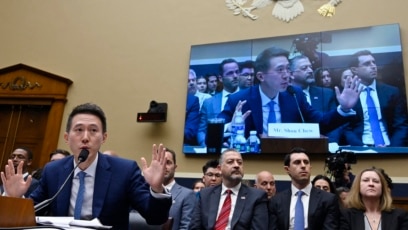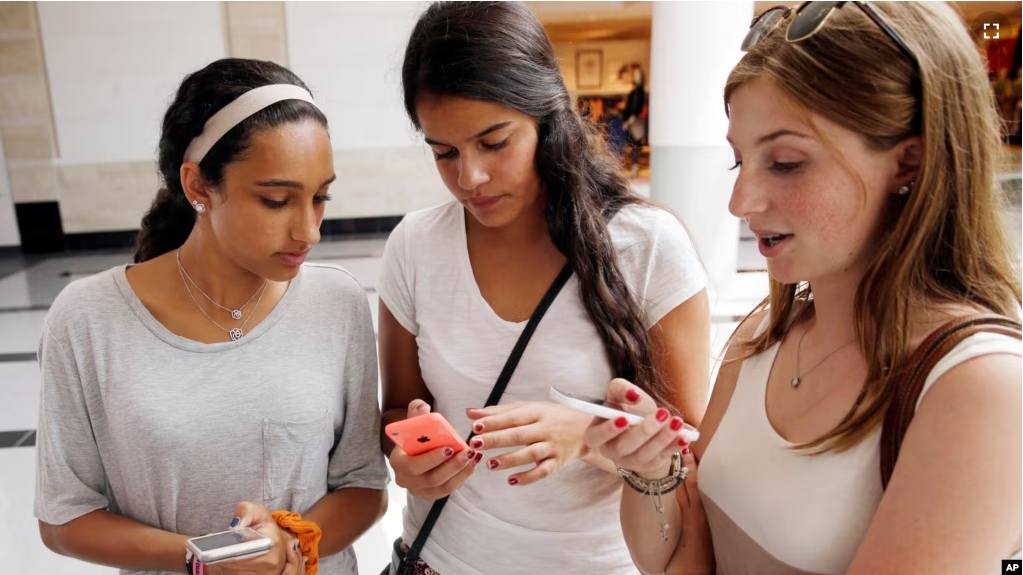The U.S. Senate has approved the nation’s first major legislation aimed at protecting children from internet harms.
Two bills passed the Senate by a vote of 91-3 on Tuesday. But the measures will also need to be passed by the U.S. House of Representatives to become law. It is currently unclear whether the House will approve the bills in the future.
One bill is known as the Kids Online Safety Act, or KOSA. The other is called the Children’s Online Privacy Protection Act (COPPA 2.0).
What do the measures do?
The KOSA bill requires technology companies to take steps to provide a “duty of care” to protect young users. This legal term covers a range of steps businesses need to take in an effort to “prevent and mitigate” harm to children. Such harms include bullying and violence, as well as online information related to suicide, eating disorders and substance and sexual abuse.
The bill known as COPPA 2.0 is designed to increase privacy rules related to children. The bill bans some targeted advertising to kids online. It also bars data collection on children without their knowledge or approval. And it gives parents and young users the ability to remove personal information from social media services.
In addition, the bills would require companies to permit minors to opt out of product tools that use activity history to predict and suggest additional content to keep users online for long periods.
How will they be enforced?
The bill empowers state attorney general representatives to enforce most parts of the laws. However, the “duty of care” part cannot be enforced by state attorneys general. That change was made after concerns were raised that some states may seek to block information related to LGBTQ issues or reproductive rights.
Wider enforcement will be dealt with by the Federal Trade Commission (FTC), which will help decide what kinds of content is “harmful” to children.
Who supports the measures?
KOSA and COPPA 2.0 are being supported by a wide range of nonprofits, technology accountability organizations and parental rights groups. In addition, the bills have been supported by major groups representing American doctors and teachers.
Some well-known technology companies – including Microsoft, X and Snap – have also expressed support. Meta, which owns Facebook, Instagram and WhatsApp, has not publicly expressed strong support or opposition to the measures. Meta has said in the past it is not completely against some government regulation of social media.
Who opposes the legislation?
Some technology industry groups and the American Civil Liberties Union (ACLU) have criticized the measures. They have suggested that differing definitions of what is considered harmful to children could result in minors being blocked from important information. Such information could include LGBTQ issues, reproductive rights or vaccines.
Some changes were made earlier to the legislation in an effort to overcome these concerns, but some critics said those did not go far enough. “They made improvements, but not enough,” said Democratic Senator Ron Wyden of Oregon. He was one of three senators who voted against the bills. He recently told reporters, “I still think it is going to harm a lot of LGBTQ kids because of the way it’s going to make it difficult for them to get information.”
Can the legislation pass the House?
Josh Golin is executive director of Fairplay, a nonprofit group working to protect children from online marketing and other possible harms. He told The Associated Press before the Senate vote that he is “very hopeful” the bills will eventually be passed by both houses of Congress.
“The reason it has not come to a vote yet is that passing legislation is really hard, particularly when you’re trying to regulate one of the, if not the most powerful industry in the world,” Golin said.
I’m Bryan Lynn.
Bryan Lynn wrote this story for VOA Learning English, based on reports from The Associated Press, Reuters, Agence France-Presse and the European Commission.
Quiz – First Online Child Safety Bill Passes US Senate

Start the Quiz to find out
_________________________________________
Words in This Story
mitigate – v. to reduce the harmful effects of something
bully – v. to purposefully frighten someone who is smaller or weaker than you
opt out – v. to choose not to be part of an activity or to stop being part of it
LGBTQ – n. lesbian, gay, bisexual, transgender, and queer/questioning one’s sexual or gender identity
accountable – adj. being responsible for one’s own actions and being able to explain those actions
regulate – v. to control an activity or process, especially by using rules or laws
